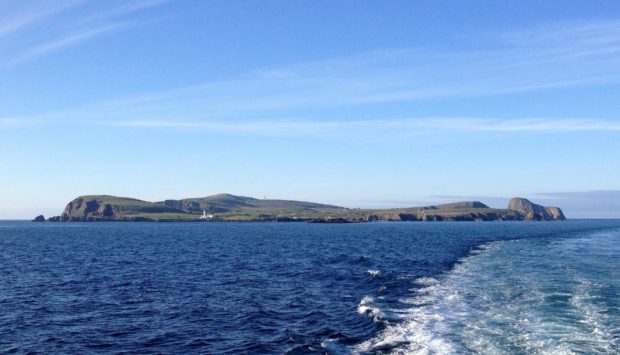Defying complex logistical and weather challenges, residents on four of the most inaccessible islands in the UK will shortly be fully vaccinated and looking forward to welcoming visitors as soon as restrictions allow.
By the end of this month, all eligible adults on the Shetland islands of Fair Isle, Fetlar, Foula and Out Skerries will have received both doses.
Weather permitting, the 26 adults on Skerries will complete their vaccinations today.
On Foula, 14 second-dose vaccinations are scheduled to take place next Wednesday.
Fetlar’s 48 adults have already received both vaccinations, while Fair Isle’s 35 adults received their second dose last Monday.
NHS Shetland’s chief nurse Edna Mary Watson said the challenges involved require a particular mindset to overcome.
“Foula and Fair Isle are accessed by six seater planes, so in the unpredictable weather travel is a challenge.
“The other islands are reached by ferry, sometimes two or three ferries.
“When the sea is rough or the winds high, the ferries are cancelled.
“This is all part of the challenge of providing health and care in remote and rural communities and we are very grateful and proud of our team of community nurses who understand the challenges and have a flexible and can-do mindset.”
Faced with the challenges, heading to and fro to roll the vaccines out to different age groups in step with the national programme made no sense, so once there, everyone eligible got the jab.
The board’s interim chief executive Michael Dickson says faced with no intensive care facilities on Shetland, residents of the remote islands had bunkered down hard to avoid Covid coming into their communities.
“If you get sick in one of the outer isles, getting help is a complicated process, so it was really important that we were able to vaccinate them as soon as possible.
“The logistical challenges of even getting a freezer that can store the vaccine at -70 degrees to Shetland meant a delay in getting the first Pfizer vaccines here and then out to places that are particularly windy like Fair Isle, so we had to establish quickly whether we were able to transport the vaccine by plane once it had been defrosted.
“It’s quite fragile, not a vaccine that you want to bang about, so at the start we had to pause our planned roll out to the outer isles because we weren’t clear we were able to transport it by plane.
“Luckily we got clearance that that was OK, and it is treated with great respect and very carefully, simply because we know how important it is to the island communities.”
Although Shetland was one of the first places to have Covid cases in the UK, and for a while one of the worst affected spots, the remote islands managed to keep it at bay.
Mr Dickson said: “Full credit to the communities, they took a difficult decision.
“They’re really friendly welcoming places but they took a decision to bunker down and avoid contact, and adapted really well.
“They are so heavily dependent on tourism, being fully vaccinated gives them an opportunity to start to get back to as close to normal as possible, and they’re looking forward to welcoming people back onto their islands.”
Meanwhile, none of the other remote Scottish islands are so far fully vaccinated, with their boards rolling out the jabs in step with the national programme or as supplies permit.
